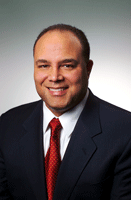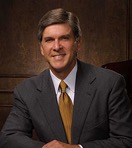Pay of Telecom Trade Association Chiefs
18 09, 13 13:53 Filed in: FCC Reform
Ever wonder how much the heads of major telecom trade associations get paid?
Today FierceCable gave us the raw data for CY11.
So here in order are the big three. Sadly for NAB, their man comes in last. Perhaps a sign of the times of the decrease in broadcaster influence in DC. When I joined FCC in 1979, NAB, Motorola,, and AT&T (not the current AT&T) were the big forces at FCC and could almost dictate decisions to the 8th Floor. Only NAB remains of this triumvirate and into longer has the dominant position it once had. (The article reports also that NAB lags in revenue behind CEA, NCTA, CTIA, and even Cable Labs.)

CTIA’s Steve Largent was reported to have “a base salary of $2.3 million and total compensation of $2.7 million in 2011”
 CEA’s Gary Shapiro was reported to have “$2.44 million pay package”
CEA’s Gary Shapiro was reported to have “$2.44 million pay package”
 NTCA’s Michael Powell was reported to “earned a base salary of $1.7 million and total compensation of $2.25 million in 2011, including a $500,000 bonus.” However, he joined NTCA in March 2011 so it is unclear what the salary would be for a full year and whether part was a onetime “signing bonus”.
NTCA’s Michael Powell was reported to “earned a base salary of $1.7 million and total compensation of $2.25 million in 2011, including a $500,000 bonus.” However, he joined NTCA in March 2011 so it is unclear what the salary would be for a full year and whether part was a onetime “signing bonus”.
 NAB’s Gordon Smith reported $1.2 million in salary and $1.43 million in total compensation for the year ending March 31, 2012. Actually, Smith was not really even #4 if you consider non spectrum telecom associations. Walter McCormick of USTelecom (the former USTA) had a base pay of $947,665 and total compensation of $1,581,000.
NAB’s Gordon Smith reported $1.2 million in salary and $1.43 million in total compensation for the year ending March 31, 2012. Actually, Smith was not really even #4 if you consider non spectrum telecom associations. Walter McCormick of USTelecom (the former USTA) had a base pay of $947,665 and total compensation of $1,581,000.
Why is this important? This is not left wing criticism of salary inequality. Rather the reason why these trade associations often stake out extreme positions and are unwilling to seek compromise for timely resolution of spectrum issues is closely related to the high pay of the CEOs and the resulting need of the CEOs to routinely impress the membership with macho stands on contentious issues -- in your blogger’s opinion. When FCC, the “expert agency in spectrum management” tries to seek consensus solutions as the almost universal alternative to deciding an issue on public interest factors, these macho CEOs are a barrier to timely resolution. Technology moves at “Internet speed”. Governments move at “government speed” and in spectrum policy FCC is often moving at the low end of even “government speed”.
As in the case of Docket 10-4 where it took 2487 days to resolve the issue of how to prevent cellular booster interference to cellular systems - not exactly “rocket science” - trade association rigidity to timely compromise hurts all parties involved. The recently announced PCS H block auction is another example of a proceeding that took far too much time to the detriment of the public and most firms involved. (The H Block controversy goes back to at least WT Docket No. 04-356.)
Perhaps FCC should recognize that it must be at least prepared to play King Solomon in technical spectrum disputes if it wants to have timely decisions with these macho players. Consensus solutions are a good idea, but only if they are timely and really equitable.
UPDATE
Here is a table with other trade association CEOs’ salaries for comparison.
Today FierceCable gave us the raw data for CY11.
So here in order are the big three. Sadly for NAB, their man comes in last. Perhaps a sign of the times of the decrease in broadcaster influence in DC. When I joined FCC in 1979, NAB, Motorola,, and AT&T (not the current AT&T) were the big forces at FCC and could almost dictate decisions to the 8th Floor. Only NAB remains of this triumvirate and into longer has the dominant position it once had. (The article reports also that NAB lags in revenue behind CEA, NCTA, CTIA, and even Cable Labs.)

CTIA’s Steve Largent was reported to have “a base salary of $2.3 million and total compensation of $2.7 million in 2011”



Why is this important? This is not left wing criticism of salary inequality. Rather the reason why these trade associations often stake out extreme positions and are unwilling to seek compromise for timely resolution of spectrum issues is closely related to the high pay of the CEOs and the resulting need of the CEOs to routinely impress the membership with macho stands on contentious issues -- in your blogger’s opinion. When FCC, the “expert agency in spectrum management” tries to seek consensus solutions as the almost universal alternative to deciding an issue on public interest factors, these macho CEOs are a barrier to timely resolution. Technology moves at “Internet speed”. Governments move at “government speed” and in spectrum policy FCC is often moving at the low end of even “government speed”.
As in the case of Docket 10-4 where it took 2487 days to resolve the issue of how to prevent cellular booster interference to cellular systems - not exactly “rocket science” - trade association rigidity to timely compromise hurts all parties involved. The recently announced PCS H block auction is another example of a proceeding that took far too much time to the detriment of the public and most firms involved. (The H Block controversy goes back to at least WT Docket No. 04-356.)
Perhaps FCC should recognize that it must be at least prepared to play King Solomon in technical spectrum disputes if it wants to have timely decisions with these macho players. Consensus solutions are a good idea, but only if they are timely and really equitable.
UPDATE
Here is a table with other trade association CEOs’ salaries for comparison.
blog comments powered by Disqus



![Validate my RSS feed [Valid RSS]](valid-rss-rogers.png)

